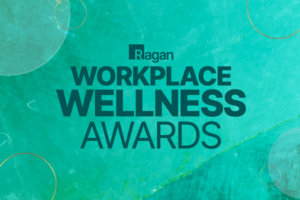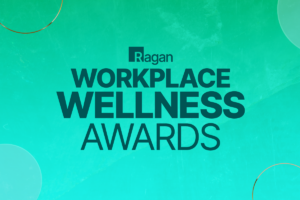Kind comms: How to express care and gratitude for employees through recognition
Industry leaders discuss the strategy and spirit communicators can embrace for World Kindness Day and ahead of Thanksgiving.

November 13 is World Kindness Day. It’s a great opportunity to celebrate the people and community connections that make our world a more positive place by living and acting with an emphasis on kindness. For internal comms pros, this holiday, as well as Thanksgiving, presents an opportunity to recognize and honor the people who make an organization what it is — the employees.
To gain a clearer perspective on the best ways communicators can salute their employees for their accomplishments or simply the hard work they do, we spoke with seasoned comms pros for their takes on bringing kindness and gratitude to life this time of year, and why employee recognition is so important.
Recognition begins with strategy
It sounds so simple, but it’s true: As an employee, it feels great when your employer acknowledges the work you put in every day. But it takes some work to make that recognition feel earnest.
Alicia McNease, a strategic comms and DE&I leader, said that intentionality on the part of the organization is a critical component of proper recognition, and that communicators should work to get to know the people they’re recognizing to create authentic announcements across appropriate channels and touchpoints.
“Comms pros should focus on meaningful and impactful communication, and not just check the box,” McNease said. “Find out what matters to your team members, and encourage other leaders to do the same. Some people prefer private recognition, while others enjoy public recognition.”
It helps to continuously foster connections and relationships with employees whenever possible, not just when it’s needed for messaging.
“Throughout the year, get to know your team and use that knowledge to make being recognized individually special for them,” she said.
Another part of the equation is smart and well-timed gratitude. Ongoing efforts to help top performers feel like they’re an integral part of the company operations can go a long way. Kerry O’Grady, Director of Teaching Excellence at Columbia Business School and professor of business communications at the Isenberg School of Management at the University of Massachusetts Amherst, said that these measures can prevent employees from leaving for greener pastures.
“The truth is, not everyone is replaceable, and it’s too late to make them feel that way when they already feel defeated or undervalued,” O’Grady said.
It’s also not just the big, grand pronouncements in front of the whole team that are great for morale — it’s the small gestures too.
“Sending thank-you notes for a job well done, publicly highlighting employees that went above and beyond, and talking to teams regularly about what keeps them up at night and hinders their productivity — and fixing it — are just a few of the ways leaders can show humanity, empathy, kindness, and gratitude to those who do the work,” O’Grady added.
The finer points of recognition
Acts of kindness and recognition can’t be done in a vacuum. When formulating messaging around recognition, communicators should ensure that it’s consistent with the organization’s values and accessible to employees of all levels.
“Recognition doesn’t need to be top-down for it to matter. Peer-to-peer recognition can be a powerful tool for motivation and is an opportunity to recognize the day-to-day work of each other,” said Samantha Hillstrom, internal communications and employee engagement executive.
Additionally, when recognition is built into an organization’s larger culture, it’ll show, and it’ll and help keep morale high. This begins with consistent and frequent gratitude for employees.
“Consistency shows employees that recognition is embedded in the culture and fosters the ability for people to look at one another colleagues through the lens of gratitude,” Hillstrom said.
Going beyond accolades
Recognizing people for things they’ve done on the job is undoubtedly important. But sometimes, you should recognize people simply for who they are and approach that situation with kindness. Asha Ramirez, senior vice president and marketing and communications lead, Americas, at global creative agency Dentsu, shared a personal anecdote that captures this sentiment perfectly.
Ramirez returned to work four months after giving birth to her son. Her son received a concerning diagnosis, which further exacerbated the weight of her personal priorities. She went to her supervisor and shared her situation, admitting that the agency might not get the best version of her.
The supervisor’s reaction is a model for others.
“They recognized my state of mind and gave me the space that I needed to heal. They also knew that deep down, I’m an achiever, which is something I’d lost sight of,” Ramirez said.
Over the next few months, Ramirez’s team placed her on high-leverage projects, encouraged her along the way, and reminded her of what she was capable of in her role. This eventually led to a promotion to her current role.
“In many ways, they were part of my healing journey,” she said. “I didn’t need a formal program, award, or certificate to make me feel recognized. They knew what made me, me. And that made me feel seen.”
Recognizing employees isn’t just the right thing to do for your company and culture. It’s the right thing to do for the human beings that make our organizations great places to work.
Sean Devlin is an editor at Ragan Communications. In his spare time he enjoys Philly sports, a good pint and ’90s trivia night.







